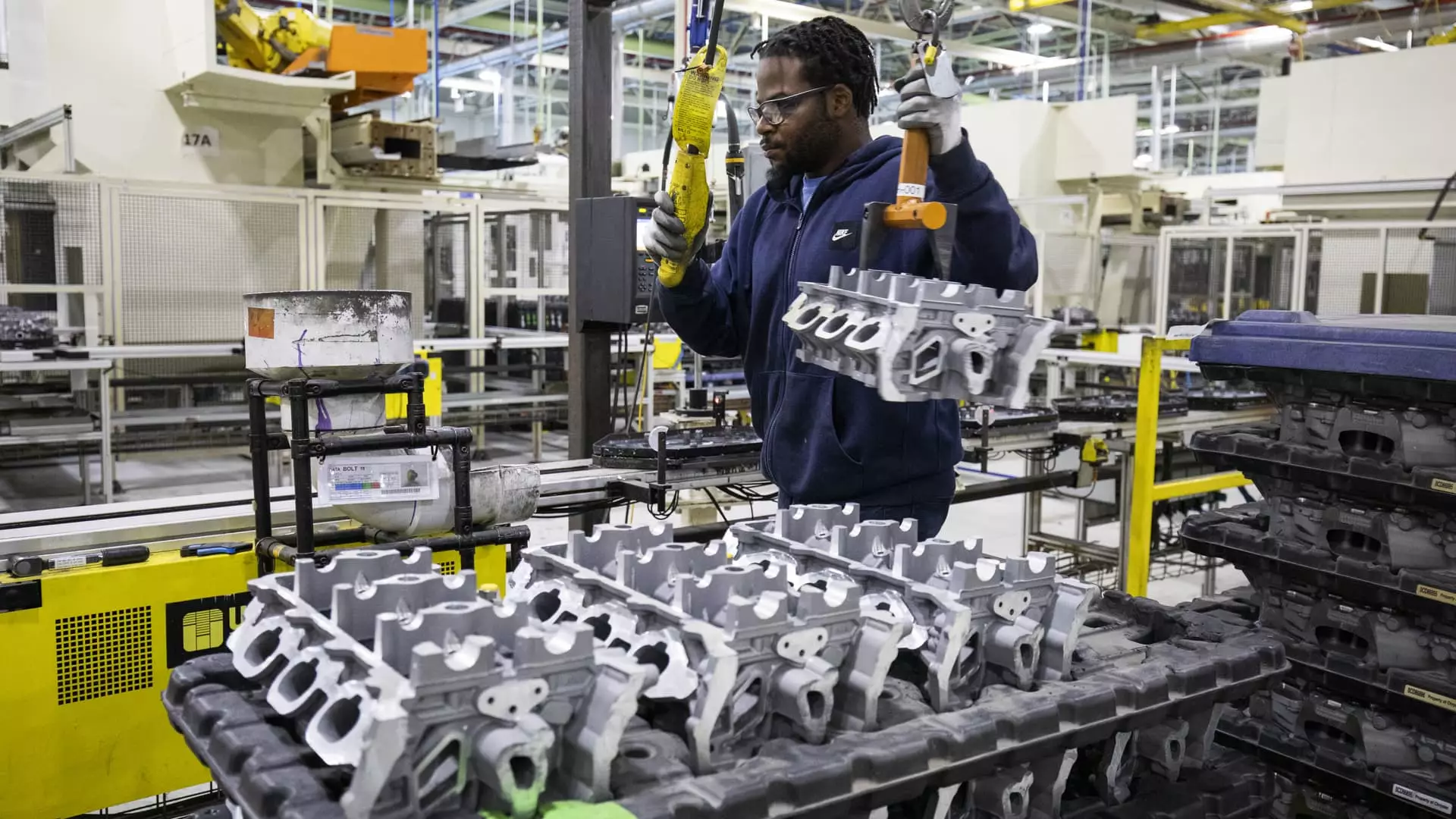In an unusual display of unity amid fierce competition, six influential policy groups representing the backbone of the U.S. automotive industry have banded together to voice their alarm over impending tariffs on auto parts. The proposed 25% tariffs, set to take effect May 3, threaten to strangle a sector already teetering on the brink. This unprecedented collaboration—from automakers to franchised dealers—signifies a desperate call for intervention from the Trump administration.
Typically, each group operates independently, jockeying for individual interests that can often clash. The fact that they have crafted a united front is indicative of the severity of the situation. Their joint letter expresses fears that these tariffs could unleash chaos, putting millions of jobs at risk. Faced with a looming economic storm, the automakers are demanding attention, not just for their own survival but for that of the broader economy.
The Supply Chain Nightmare
The implications of these tariffs extend well beyond mere dollar signs. In a sector characterized by intricate global supply chains, even a single hiccup can resonate profoundly. The letter asserts that many auto suppliers are already in distress—overwhelmed by existing economic pressures. The heartbreakingly candid acknowledgment that one supplier’s failure could lead to a complete shutdown of an automaker’s production line puts into perspective how interconnected and fragile this ecosystem is. It’s a chain reaction waiting to happen, one that could reverberate through every American community reliant on these jobs.
Manufacturing isn’t simply about assembling parts; it’s about nurturing relationships and trust—both within companies and between them. The fear that workers might face layoffs, and ultimately bankruptcy, raises an alarming red flag over the precarious balance maintained in the automotive sector. If this balance is disrupted, the real consequences will spiral beyond corporate loss, penetrating communities and lives across the nation.
The Economic Reckoning
The urgency of the situation is underscored by the staggering economic stakes. The letter’s authors highlight that the automotive sector not only supports 10 million jobs but also contributes a staggering $1.2 trillion to the economy annually. A downturn in this industry would create a domino effect, impacting not just automakers but ancillary industries—from suppliers to dealers to the myriad of service-based jobs that thrive on the automotive economy.
The research reports may paint a picture of impending doom with projections of millions of lost vehicle sales, skyrocketing prices for both new and used vehicles, and an estimated $100 billion in increased costs. Is this really the legacy we wish to leave? The prospect of such economic fallout is unsettling, but it also sparks questions about the efficacy of these tariffs in achieving their intended goals. Is the short-term gain of protectionism worth the long-term cost of unfurling chaos in an essential sector of our economy?
A Tense Political Landscape
Interestingly, while President Trump has indicated a willingness to reconsider these harsh taxes, the true change will require more than mere words. The letter reflects a cautious optimism—the hope that the administration might provide some reprieve akin to what was recently extended to the consumer electronics and semiconductor industries. But hope is a fragile thing in politics, susceptible to the whims of strategy and ideology.
Adding an extra layer of complexity, voices from the electric vehicle sector—including titans like Tesla—sit aloof from the concerns of traditional automakers. This rift exemplifies how technological advancements and changing consumer preferences are reshaping the industry. The traditional automotive sector cannot merely cling to old paradigms; they must adapt and evolve. But just like turning around the proverbial battleship, transitioning into new territories takes time and requires adequate support.
In this fraught landscape, the industry’s plea resonates louder than ever. As the deadline looms closer, so too does the realization that the fate of the U.S. automotive sphere hangs precariously in the balance. If nothing is done, it’s not just the industry at stake; it’s the collective future of millions of Americans whose livelihoods depend on it.

